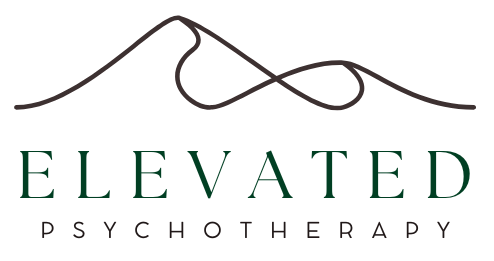
Dialectical Behavior Therapy (DBT) is an evidence-based treatment designed to help individuals manage emotional dysregulation, a challenge commonly faced by both neurodivergent individuals and those within the LGBTQ+ community. For neurodivergent LGBTQ+ individuals, DBT can provide essential tools to navigate emotional intensity, build stronger relationships, and manage distress.
Understanding Emotional Dysregulation
Emotional dysregulation refers to difficulty in managing and responding to intense emotions. People with ADHD, autism, OCD and other forms of neurodivergence often struggle with regulating their emotional responses. For LGBTQ+ individuals, additional stressors, such as societal stigma, identity-related trauma, and marginalization, can amplify emotional dysregulation. The combination of neurodivergence and minority stress creates unique challenges, making a therapeutic approach like DBT particularly valuable.
What is DBT?
DBT was originally developed by Dr. Marsha Linehan to treat Borderline Personality Disorder (BPD), but it has since proven effective for a wide range of conditions, including emotional dysregulation, anxiety, and mood disorders. DBT combines elements of Cognitive Behavioral Therapy (CBT) with mindfulness and acceptance strategies. It focuses on four key skills modules:
– Mindfulness: Being present in the moment without judgment.
– Distress Tolerance: Learning how to cope with difficult emotions and situations without resorting to impulsive behavior.
– Emotional Regulation: Understanding and managing intense emotions more effectively.
– Interpersonal Effectiveness: Improving relationships through better communication and boundary-setting.
For neurodivergent LGBTQ+ individuals, these skills offer powerful strategies to navigate the complexities of their emotional landscape, especially when faced with societal pressures, trauma, or identity-related challenges.
Why DBT Works for Neurodivergent LGBTQ+ Individuals
DBT is particularly suited for neurodivergent LGBTQ+ individuals because it acknowledges and addresses both emotional intensity and interpersonal challenges. Emotional dysregulation, common in neurodivergence, can be exacerbated by the experiences of discrimination or rejection that LGBTQ+ individuals face. DBT offers a way to manage these intersecting stressors.
Mindfulness as a Foundation
Mindfulness is a core component of DBT and plays a crucial role in helping individuals become more aware of their thoughts, emotions, and reactions. For neurodivergent LGBTQ+ individuals, mindfulness can help reduce the emotional reactivity triggered by external pressures, such as societal stigma or rejection. Many neurodivergent people struggle with hyperfocus or emotional overload, and mindfulness helps them pause, reflect, and respond more effectively.
Emotional Regulation
Neurodivergent individuals, such as those with ADHD or autism, often experience heightened emotional sensitivity and intensity. Emotional regulation skills within DBT provide practical tools for recognizing and labeling emotions, understanding their triggers, and implementing strategies to bring emotions back into balance. For LGBTQ+ individuals, this can be especially helpful when managing feelings of rejection, shame, or anxiety related to their identity.
Interpersonal Effectiveness
LGBTQ+ individuals may experience unique challenges in forming and maintaining relationships, particularly when dealing with acceptance or coming out. Neurodivergent individuals may also face difficulties in understanding social cues, which can lead to misunderstandings or conflicts. DBT’s interpersonal effectiveness skills teach clients how to set boundaries, communicate clearly, and assert their needs without escalating situations. These skills are vital for both neurodivergent individuals and those in the LGBTQ+ community who may already feel disconnected or misunderstood by others.
Distress Tolerance
For neurodivergent LGBTQ+ individuals, distress tolerance skills are essential for coping with difficult situations that are outside their control. Whether it’s dealing with discrimination, microaggressions, or emotional overload due to neurodivergence, DBT offers ways to manage and survive intense feelings. The focus on acceptance is key: instead of trying to eliminate distress, DBT encourages clients to accept it and find healthy ways to cope, which can prevent impulsive or destructive reactions.
Addressing Minority Stress and Identity Trauma
Minority stress refers to the chronic stress faced by individuals who belong to marginalized groups, such as LGBTQ+ people. The additional layer of navigating both neurodivergence and minority stress can create heightened emotional challenges. For example, individuals may internalize negative societal messages about their identity, leading to **identity trauma**. DBT, with its emphasis on balancing acceptance and change, offers a way to confront this trauma while fostering self-compassion and resilience.
Mindfulness and distress tolerance, in particular, are invaluable for LGBTQ+ individuals who may feel overwhelmed by societal pressures or identity-related rejection. By focusing on the present and accepting their emotional responses without judgment, individuals can learn to create a sense of peace despite external challenges.
Practical Applications of DBT for Neurodivergent LGBTQ+ Clients
DBT can be applied in both individual therapy and group settings, providing a structured framework for skill development. For neurodivergent LGBTQ+ individuals, the following strategies can be particularly effective:
1. Emotion Tracking: Use emotion tracking apps or journals to monitor emotional fluctuations throughout the day. This helps clients identify triggers, such as social interactions, overstimulation, or identity-related stressors.
2. Distress Tolerance Kits: Suggest creating distress tolerance kits, which can include items like stress balls, soothing music, or grounding exercises. Clients can use these tools when they feel emotionally overwhelmed, helping them manage distress without resorting to harmful behaviors.
3. Skill Generalization: Work to generalize DBT skills across different environments, such as home, work, or social settings. This is particularly important for neurodivergent individuals who may struggle with transitions or changes in routine.
4. Role-Playing Interpersonal Scenarios: Use role-playing to help clients practice boundary-setting and assertive communication. This can be especially helpful for LGBTQ+ individuals who may face challenging conversations related to their identity.
DBT in Group Settings
Group DBT therapy can be particularly beneficial for neurodivergent LGBTQ+ individuals. Group settings offer a supportive environment where clients can connect with others facing similar challenges. Group members can share coping strategies and experiences, reducing feelings of isolation. For LGBTQ+ individuals, finding a safe space to discuss their identity while learning emotional regulation skills can be deeply healing.
In a group setting, neurodivergent individuals often benefit from the structure and predictability of DBT’s skills training modules. By reinforcing skills in a supportive and predictable environment, clients can gradually build emotional resilience and improve interpersonal relationships.
Conclusion
DBT offers neurodivergent LGBTQ+ individuals a structured and effective approach to managing emotional dysregulation and building healthier relationships. By focusing on mindfulness, emotional regulation, distress tolerance, and interpersonal effectiveness, DBT helps clients navigate the complex intersection of neurodivergence and LGBTQ+ identity. Whether in individual or group therapy, DBT provides essential tools for fostering emotional balance, resilience, and personal growth.
By integrating these skills into daily life, neurodivergent LGBTQ+ individuals can experience profound improvements in their mental health, relationships, and overall well-being.
Are you look for support for your ADHD? Schedule a consultation with me today to see how I can help.
Share This Story
Ashley M. Allen, PsyD is a Colorado-based licensed clinical psychologist who sees clients virtually nationwide through PSYPACT. Dr. Allen specializes in LGBTQ+, alternative lifestyles, emotional disorders, ADHD, BPD and chronic illness. Stay tuned to her blog for tips on mental wellness.


